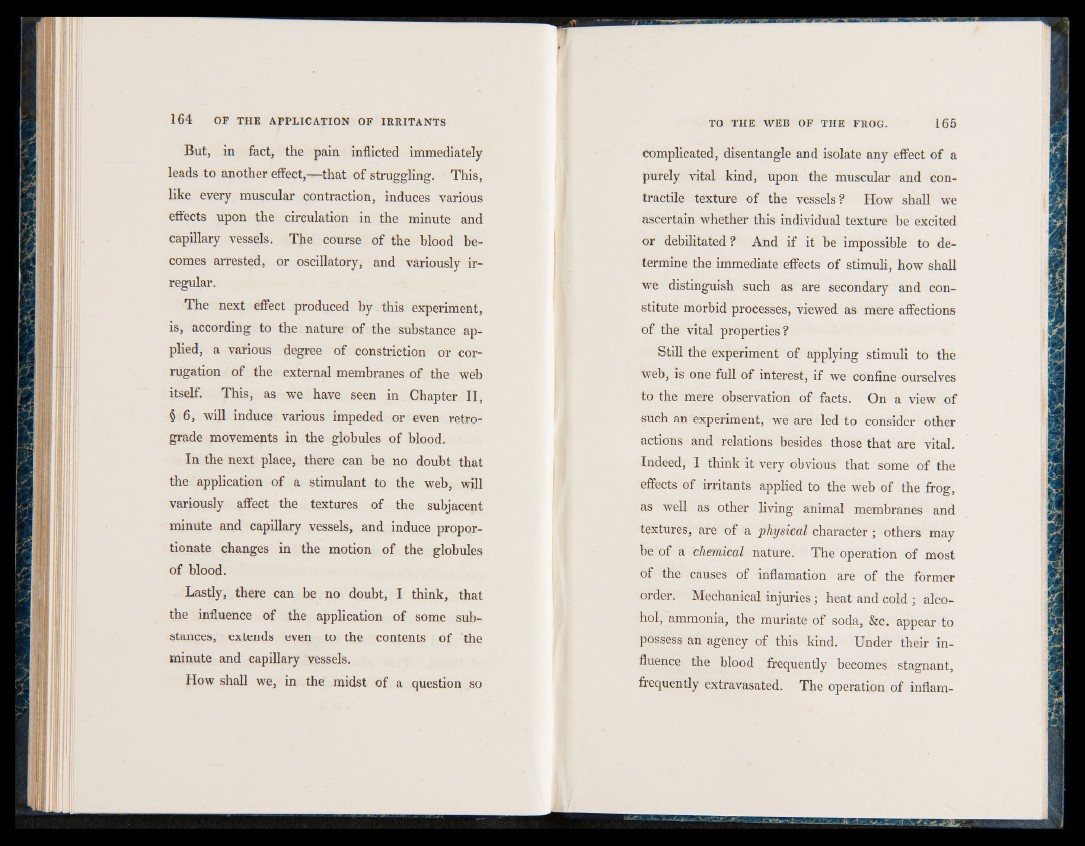
But, in fact, the pain inflicted immediately
leads to another effect,—that of struggling. This,
like every muscular contraction, induces various
effects upon the circulation in the minute and
capillary vessels. The course of the blood becomes
arrested, or oscillatory, and variously irregular.
The next effect produced by this experiment,
is, according to the nature of the substance applied,
a various degree of constriction or corrugation
of the external membranes of the web
itself. This, as we have seen in Chapter II,
§ 6, will induce various impeded or even retrograde
movements in the globules of blood.
In the next place, there can be no doubt that
the application of a stimulant to the web, will
variously affect the textures of the subjacent
minute and capillary vessels, and induce proportionate
changes in the motion of the globules
of blood.
Lastly, there can be no doubt, I think, that
the influence of the application of some substances,
extends even to the contents of the
minute and capillary vessels.
How shall we, in the midst of a question so
complicated, disentangle and isolate any effect of a
purely vital kind, upon the muscular and contractile
texture of the vessels? How shall we
ascertain whether this individual texture be excited
or debilitated ? And if it be impossible to determine
the immediate effects of stimuli, how shall
we distinguish such as are secondary and constitute
morbid processes, viewed as mere affections
of the vital properties ?
Still the experiment of applying stimuli to the
web, is one full of interest, if we confine ourselves
to the mere observation of facts. On a view of
such an experiment, we are led to consider other
actions and relations besides those that are vital.
Indeed, I think it very obvious that some of the
effects of irritants applied to the web of the frog,
as well as other living animal membranes and
textures, are of a physical character ; others may
be of a chemical nature. The operation of most
of the causes of inflamation are of the former
order. Mechanical injuries; heat and cold ; alcohol,
ammonia, the muriate of soda, &c. appear to
possess an agency of this kind. Under their influence
the blood frequently becomes stagnant,
frequently extravasated. The operation of inflam